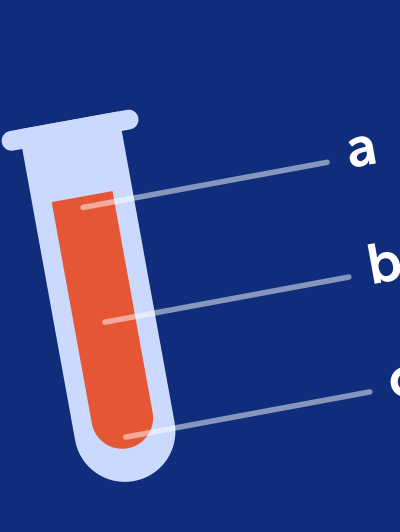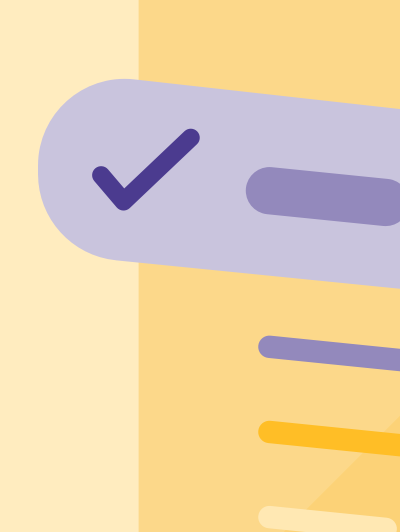
The Daily NCLEX® Challenge is the easiest way to ace your NCLEX exam the first time! Join today, and access 7 days of Premium for free.
Sign up now to receive your first challenge →
When it comes to how to study for the NCLEX, preparing the right way is key. Nursing school is no joke and with the limited time you have, it’s vital to be sure you’re using it wisely.
That’s exactly why we put together this handy guide to helping you get the most out of your studying sessions. By utilizing a few simple study hacks, you’ll be on the fast track to getting those sought-after credentials after your last name in no time.
But how do you do it? Where do you begin? What’s most important?
The reality is the NCLEX is unlike exams in nursing school. And this is precisely why you’re here today. So let’s dive into how to study for the NCLEX … the right way.
When you go into any big event without a plan, odds are things won’t end up going as well as they could have. You need a well thought-out plan for how to study for the NCLEX. Whether your exam is in one year or one month, it’s never too early or too late to evaluate your studying process to make it more effective.
Studying for the NCLEX is a marathon, not a sprint. Success at the testing center is all about endurance. This is why you start training now, not a week before test time. You’d never run a marathon without training, so don’t plan to pass such an important exam without practice.
When you study, give yourself enough time to get the job done. Study in 25-minute intervals, give yourself a 5-minute break, then repeat. After 100 minutes of studying you reward yourself with a longer break. This is called the Pomodoro Technique. Bonus: It’s also useful for when you have that big research paper to write.

A study schedule ensures you don’t leave anything out. It also helps you focus on using a comprehensive approach to studying. When you cover all exam subjects and nursing areas, you can stay on track to pass the first time.
Since you’ll be studying each day and not cramming, plan what you’re going to study ahead of time. Setting goals like this for yourself helps hold you accountable and makes studying a part of your routine. Also, don’t forget to schedule rest days in there, too. It’s important to not burn yourself out.
Here’s an example of an NCLEX study schedule to help you understand how to study for the NCLEX:
Monday: Fluids and electrolytes + labs
Tuesday: Antepartum, maternity, postpartum, and gynecology
Wednesday: Hematology + immune system
Thursday: Pediatrics + oncology
Friday: Cardiovascular + EKG
Saturday: Respiratory + musculoskeletal + integumentary
Sunday: Rest
Each week, reassess what you need to work on and make a new schedule, switching up your topics to study each week so you don’t get bored. You can even plan out your schedule for a month at a time. This helps you stay on track and prevents you from wasting your valuable time.
In addition to this schedule, spend time each day taking NCLEX practice questions. This is the hands-down best way to prep yourself. We’ll get more into this in a bit.
NCSBN provides free test plans for both the NCLEX-RN and the NCLEX-PN. These study guides give you an outline and serve as a guide for NCLEX test prep.
Practice for the NCLEX by taking practice test questions every day — it’s truly the secret to passing. This consistent testing helps you to practice for the real thing and helps your brain get familiar with this specific type of testing called computerized adaptive testing. It’s a win for you since you won’t waste valuable test time figuring how to answer the various types of questions and can instead focus on answering quickly and correctly.
Questions on the NCLEX may be multiple choice, ordered responses, fill in the blanks, or hot spot. Also, you may need to use charts, videos, stories, or graphics provided to answer various exam questions. This is why it’s important to invest in quality resources to help you practice. Try the Daily NCLEX Challenge for a fun practice testing experience.
A few pointers to remember while taking practice exams are:
Practicing a variety of techniques helps you to actively study and absorb information instead of passively reading that information. When you do this you retain what you study much better than silently reading a textbook.
Here are a few techniques to try:

Let’s face it, studying for the NCLEX is a full-time job! But don’t burn yourself out by studying so much you’re giving up things that bring you joy.
Here are a few study tips that’ll help you survive until test day:
Here are common things nursing students do that you should avoid doing when studying for the NCLEX.
Don’t focus on one subject for too long. It can be tempting to keep reading, especially when it’s an area you’re interested in, but keep in mind you need to be knowledgeable in many areas.
Put your phone on airplane mode and don’t check your email during a study session. It’s important that you take your study time as seriously as a job.
Vary the ways in which you study. While it’s easy to fall back on believing you only learn in one specific way, research shows most people learn in many different ways.
Don’t draw from experiences as a nursing student or from past clinical experiences, particularly if they differ from your textbooks or study materials. The truth is you may have picked up on an incorrect way of doing things. All nurses perform care a bit differently. Plus, techniques and procedures can vary from facility to facility.
Focus on what you’ve learned in the classroom. Textbooks and classroom instruction better prepare you for the NCLEX than real-life healthcare experiences. Remember, the NCLEX is rooted in evidence-based practice, not anecdotal data.
Knowing the NCLEX exam format and practicing test-taking skills from repeated testing are integral parts of passing. If you start healthy study habits now, you’ll be way ahead of the game.
If you’re overwhelmed by how to study for the NCLEX, sign up today for the Daily NCLEX Challenge. You’ll have peace of mind knowing you’re getting prepared with thousands of other nursing students just like you. See you there!
If you are still in nursing school, use these strategies and tips on your nursing exams.
Continue reading

There are always a few more things you can squeeze in last minute to boost your chances of passing.
Continue reading
